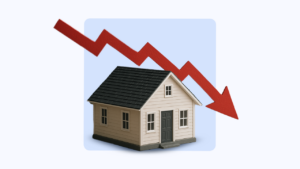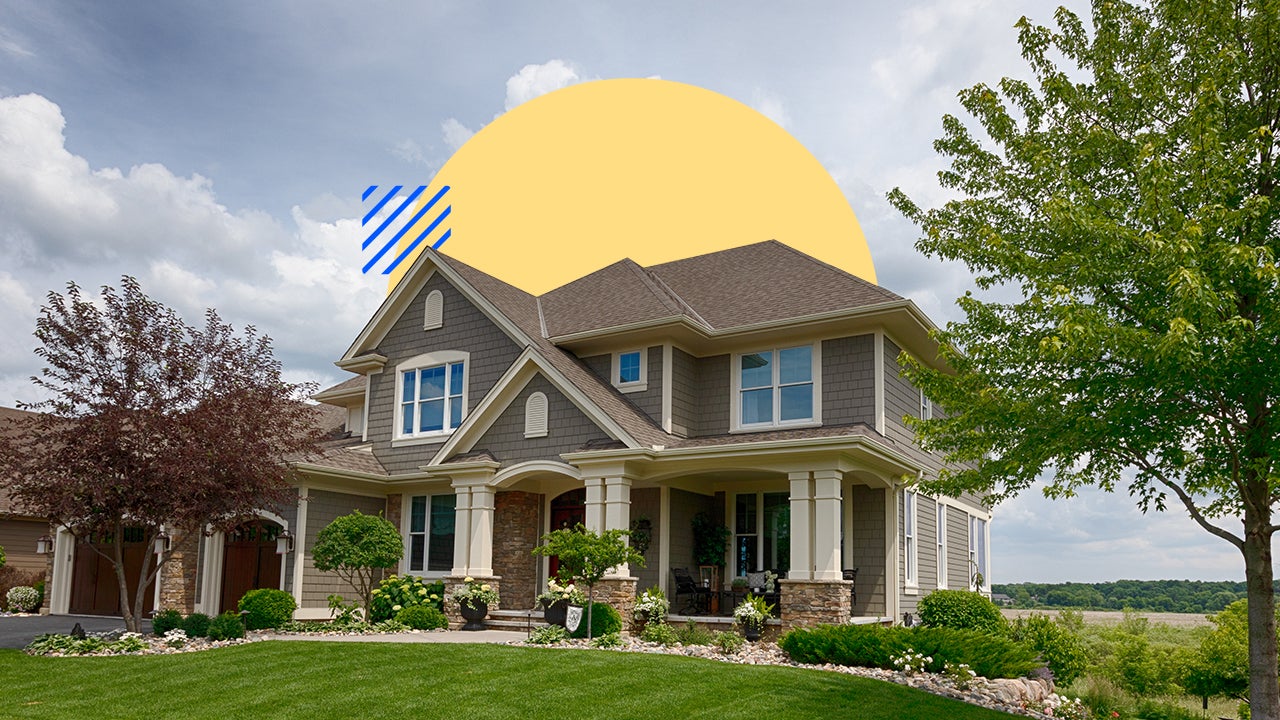What are the most expensive home maintenance costs in 2025?

Spending money doesn’t end when you buy a house. In fact, the fun’s just beginning. Homes come with a lot of costs — and chief among them is maintenance.
Many buyers might not take maintenance into account when purchasing a home, especially first-timers moving from a rental whose issues are largely handled by the landlord. Result: surprise or even alarm when a major appliance dies, the furnace dies or the roof starts leaking. Along with unexpected repairs, there’s routine, day-to-day upkeep — and that, too, adds up quickly. In fact, it currently averages more than $8,800 a year, according to Bankrate’s Hidden Costs of Homeownership Study.
Small wonder that homeowners are feeling financial strain these days. A recent survey by online home services company Angi found that nearly half (48 percent) of homeowners say that stress due to mandatory repairs has increased since the start of 2025. Plus, “more than 60 percent are more worried now about covering maintenance and repair costs than they were just a few months ago,” notes the site’s co-founder, Angie Hicks.
Let’s look into the most common (and most expensive) home maintenance costs, why they’re going up, and how much you should budget for them.
Of homeowners who have at least one regret about buying their current home, the most common – cited by nearly half (42%) – is that maintenance and other hidden costs were more expensive than expected.
Why are home maintenance costs increasing?
“The top concern that we’re seeing among homeowners is affordability,” says Hicks. And with good reason.
Since the pandemic, maintenance and repair costs have gone through the roof (no pun intended). Supply-chain issues have resulted in a shortage of materials, which is only now starting to alleviate. On the demand side, an increase in extreme weather events has driven up the need for and frequency of repairs. That’s put a strain on labor, and the cost of contractors’ and professionals’ services has risen too.
Coming out of COVID, the cost of borrowing has gotten more costly as well. Elevated interest rates on home equity loans and credit lines, in particular, have made large-scale renovations and repairs more expensive.
Piled on top of that, typical ongoing homeownership expenses, like property taxes, homeowners insurance and HOA fees have been ballooning. All told, the typical single-family home costs over $21,000 annually to own and maintain, according to Bankrate’s Hidden Cost of Homeownership Study. That’s a national average, though: Like everything associated with real estate, homeownership costs vary widely depending on your location. They range from near $12,600 a year in West Virginia to just under $34,600 in Hawaii on average.
All told, these rising costs equate to 71 percent of homeowners postponing a planned project this year, according to the Angi survey.
Which home maintenance costs have increased the most?
According to home renovation platform Thumbtack, seven categories of home care have seen double-digit boosts in repair and maintenance costs in the past year (from Q1 2024 to Q1 2025). These are:
| Project | Year-over-year increase |
|---|---|
| Roof repair or maintenance | 28.47% |
| Fireplace and chimney cleaning or repair | 16.73% |
| Sprinkler/Irrigation system | 13.11% |
| Tree trimming/removal | 12.56% |
| Water heater repair or maintenance | 12.22% |
| Full service lawn care | 11.11% |
| Central A/C repair or maintenance | 10.00% |
Source: Thumbtack Home Care Price Index, Q1 2025
As for what the near-term future may hold for maintenance prices – don’t expect relief anytime soon. Along with general inflation, the Joint Center for Housing Studies of Harvard University’s Improving America’s Housing 2025 report points to a variety of factors that could cause continued rising costs, including:
- Aging housing stock
- Aging householders
- Shortage of skilled labor
- Immigration and tariff policies
- Changes in building codes and supply brought on by climate change
Most expensive home maintenance costs
Here are the most expensive annual home maintenance and repair costs according to Thumbtack’s Home Care Price Index. All prices are as of Q1 2025.
1. House cleaning
While not all homeowners hire professional cleaners, those that do will find it can be a pricey service. The average annual cost for house cleaning is $2,722. That breaks down to almost $225 a month.
For households with more than one-earner, busy schedules and larger families, that expense may make a lot of sense. It’s about more than just peace of mind. A clean house is less likely to attract vermin, have problems with mold and is less dangerous.
2. Roof repair/maintenance
Repairing and maintaining your roof is a costly endeavor, and the costs are going up. The average cost for roof repair or maintenance is $1,471 — up nearly 30 percent from last year.
Replacing a roof is one of the most expensive repairs a homeowner can pay for, going into the five-figure range. In states where roof damage is more likely, like Florida, homeowners insurance companies may require you to replace your roof once it reaches a certain age.
3. Tree trimming/removal
Trees can be a great asset to a property, especially if they offer generous shade in the hot summer months. However, they also need to be maintained, especially if they’re near your home. And if they’re too close, unhealthy or too large, they may need to be removed. The average annual cost for tree trimming and removal is $1,138. While that may seem expensive, it’s not as costly as the damage to your roof, plumbing or foundation that a neglected tree can cause.
4. Lawn mowing
Having a lawn comes with a cost — $823 on average annually. That’s if you hire out the job. The good news is that, unlike tree trimming or roof repair, mowing a lawn is something many homeowners can do themselves. Still, you’ll need to pay for the equipment and fuel, and there’s the time cost. If you do want to hire a pro to mow, there’s still a silver lining — that $823 annual cost is over 7 percent less than it was last year.
5. Window cleaning
Another expensive service — if you hire someone to stripwash and squeegee your windows, you’re looking at an average annual cost of $519. On the plus side, unless you live in a glass house or above the second floor, this is a doable, low-cost job for most homeowners.
6. Water heater repair/maintenance
One of life’s major irritations: going to take a shower and realizing you have no hot water. That feeling only compounds if it’s not just a problem with your pilot light, but with your water heater. The average annual cost for water heater repair and maintenance is $505. If you need to replace your hot water heater, though, it’s going to cost you more — around $1,300 on average according to Angi.
7. Gutter cleaning
An often overlooked part of the home, gutters play an important role in keeping your home safe and stable. By diverting water away from the rafters, walls and foundation, they protect your home from flooding, mold and rot caused by water. Given their place in protecting your home, the average annual cost of $468 is minimal when compared to the damage neglecting your gutters can do.
8. Deck staining and sealing
A nice deck is a home feature that can add a lot of value to your place. It costs $415 on average annually to seal and stain a deck, but remember that this cost can vary significantly depending on deck material (which affects how often you have to stain it), size, level of use and whether you decide to do it yourself. I’ve personally found it costs around $150 for the three gallons of stain required for my own deck (around 500 square feet), and it’s a job I do every three to four years.
83%
Source: Hippo Housepower Report
How much should you spend on home maintenance?
Averaging $8,808 annually, home maintenance accounts for the largest chunk of hidden homeownership costs, Bankrate’s study found. Maintenance may add up, but it is almost always cheaper than repairs and renovations – not to mention its preemptive value. How much you should budget for upkeep and routine fixes depends on your income and location, as well as the size and value of your home.
How should you estimate the costs? Budget up to 4 percent of your home’s value on annual upkeep — 1 percent for the routine maintenance, then an additional 1 to 3 percent for repairs. So, this formula breaks down as:
| Home cost | Routine maintenance | Repairs | Total budget (maximum) |
|---|---|---|---|
| $250,000 | $2,500 | $2,500 – $7,500 | $10,000 |
| $400,000 | $4,000 | $4,000 – $12,000 | $16,000 |
| $600,000 | $6,000 | $6,000 – $18,000 | $24,000 |
| $1,000,000 | $10,000 | $10,000 – $30,000 | $40,000 |
Keep in mind that older homes typically require more maintenance and may need more extensive repairs over time. Often you need to replace or update major home systems or fixtures, such as installing central air conditioning or replacing a roof. If you’re in that position, being prepared to pay for repairs is crucial.
It’s important to have a plan in case something unexpected happens to hurt your home. Setting aside funds in a savings account is a smart place to start. But what if you don’t have the savings, or don’t want to spend it? You can also finance emergency repairs by borrowing against your home equity (your property’s value, minus any mortgage). In fact, 55 percent of current homeowners cite improvements or repairs as a good reason to tap equity, according to Bankrate’s Home Equity Insights Survey.
How to pay for home repairs and renovations
“What we are seeing is that over 70 percent of homeowners are prioritizing preventative maintenance to avoid larger bills down the road, which is an encouraging sign,” says Hicks. Still, every homeowner eventually experiences a situation when “upkeep” morphs into “upgrade.”
For instance, this writer had an over-30-year-old air conditioner fail on the 4th of July weekend last year. We had to decide: do a quick fix or invest in a new condenser? The temporary fix would have cost around $200, and would have gotten us through one or two more summers. The alternative was to spend several thousand dollars to install a whole new one.
Not wanting to sink money into a dying AC unit, especially in the middle of summer, we chose to go with the more expensive option. Knowing the whole family would sleep easy in the heat for years to come was worth it. Fortunately, we had anticipated the need (the AC had been hanging on by a thread) and had savings to cover it.
But if you’re not able to pay out-of-pocket for a major repair or improvement, you may be able to use your home equity. These are the main vehicles for borrowing against your home equity:
- Cash-out refinance: A cash-out refi lets you replace your existing primary mortgage with a larger mortgage, allowing you to pocket the difference. This choice is ideal if you can also snag a lower rate than the one on your primary loan. To do it, though, you’ll need to have at least a 20 percent equity stake in your home.
- Home equity loan: A home equity loan is an additional lien on your home that pays out a lump sum; you repay it at a fixed interest rate. It’s a good choice if you want to keep your primary mortgage intact and have a repair or renovation with a set cost.
- HELOC: A home equity line of credit is like the child of a home equity loan and a credit card. It lets you turn your equity into cash and keep your primary mortgage, like a home equity loan, but lets you withdraw funds at varying intervals up to a limit, like a credit card (in fact, some HELOCs give you a card to use). HELOCs are ideal if you don’t know exactly how much a project will cost, or want to pay for it over time.
Bottom line on home maintenance costs
We get it: Home upkeep can be a bite in your budget you’d rather not have. In fact, Bankrate’s Homeowner Regrets Survey found that maintenance and other hidden costs being more expensive than anticipated was the most common gripe (42 percent) among homeowners who nursed regrets about their home purchase.
The reality is: Once you buy a home, you take on the responsibility of maintaining it. This responsibility means keeping things in good condition and making necessary repairs promptly. A poorly maintained home will not only lose value (depleting the worth of your ownership stake), but can become unsafe.
Homes today are more valuable than ever, which makes proper home maintenance more important than ever. “Homeowners have told us they’re planning to stay in their homes for the long run,” says Marco Zappocosta, CEO and founder of Thumbtack. “And as we continue to see the effects of an aging housing supply — where the average home in the U.S. is 43 years old — maintenance is an extremely crucial part of keeping things running smoothly and avoiding emergencies.”
Why we ask for feedback Your feedback helps us improve our content and services. It takes less than a minute to complete.
Your responses are anonymous and will only be used for improving our website.






